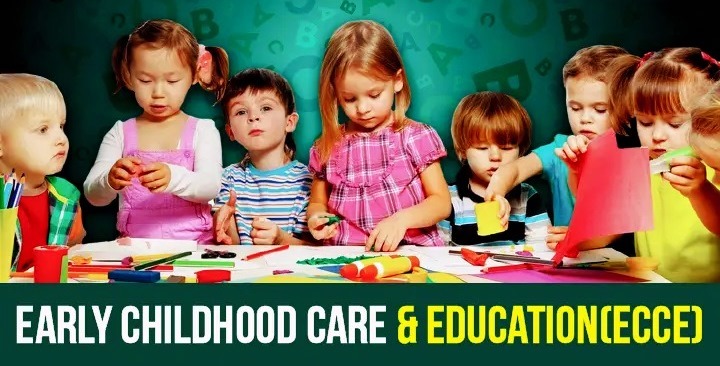
Our ECCE programs are designed to provide young children with the best start in life, ensuring they are ready to succeed in school and beyond. Total number of schools converted into ECCE School in District Chiniot are:
- ECE Rooms Established in 2014: 43 Schools
- ECCE Rooms Established in 2017: 50 Schools
- ECCE Rooms Established in 2018: 95 Schools
- ECCE Rooms Established in 2024: 280 Schools
Our ECCE Mission
Our mission is to create a nurturing, stimulating, and inclusive environment where every child can develop physically, emotionally, socially, and cognitively. We aim to foster a love for learning from an early age and support the holistic development of every child.
Key Components of Our ECCE Program:
Holistic Development:
- Physical Development: Promoting gross and fine motor skills through a variety of physical activities and play.
- Cognitive Development: Encouraging curiosity, problem-solving, and early literacy and numeracy skills through engaging and age-appropriate learning experiences.
- Emotional and Social Development: Building self-esteem, resilience, and social skills through positive interactions and collaborative play.
Inclusive and Equitable Learning:
- Access for All: Ensuring that all children, regardless of their background or abilities, have access to high-quality early childhood education.
- Supportive Environment: Creating an inclusive environment that respects and values diversity, where every child feels safe, respected, and valued.
Qualified and Caring Educators:
- Professional Development: Providing continuous training and professional development for our early childhood educators to stay current with best practices in ECCE.
- Nurturing Relationships: Building strong, positive relationships between educators and children to support emotional security and a sense of belonging.
Engaging Curriculum:
- Play-Based Learning: Emphasizing the importance of play as a vital component of learning, allowing children to explore, experiment, and discover.
- Thematic Approach: Incorporating themes and projects that are relevant to children’s interests and experiences, making learning meaningful and fun.
- Cultural Relevance: Integrating culturally relevant materials and activities that reflect the diverse backgrounds of our students.
Family and Community Partnerships:
- Parent Involvement: Encouraging active participation and collaboration with parents and caregivers to support their child’s learning and development.
- Community Resources: Leveraging community resources and partnerships to enhance the ECCE program and provide additional support services to families.
Health and Nutrition:
- Healthy Practices: Promoting healthy habits and routines, including regular physical activity, hygiene, and safety practices.
- Nutrition: Providing nutritious meals and snacks to support the physical health and well-being of children.
Continuous Improvement:
- Assessment and Evaluation: Regularly assessing and evaluating the ECCE program to ensure it meets the needs of all children and aligns with best practices and standards.
- Feedback and Adaptation: Gathering feedback from parents, educators, and the community to continuously improve and adapt our ECCE offerings.
Our Commitment to Excellence in ECCE
We are committed to providing an exceptional early childhood education that lays a strong foundation for future learning and success. Our ECCE programs are guided by the latest research and best practices in early childhood education, ensuring that every child receives the highest quality care and education.